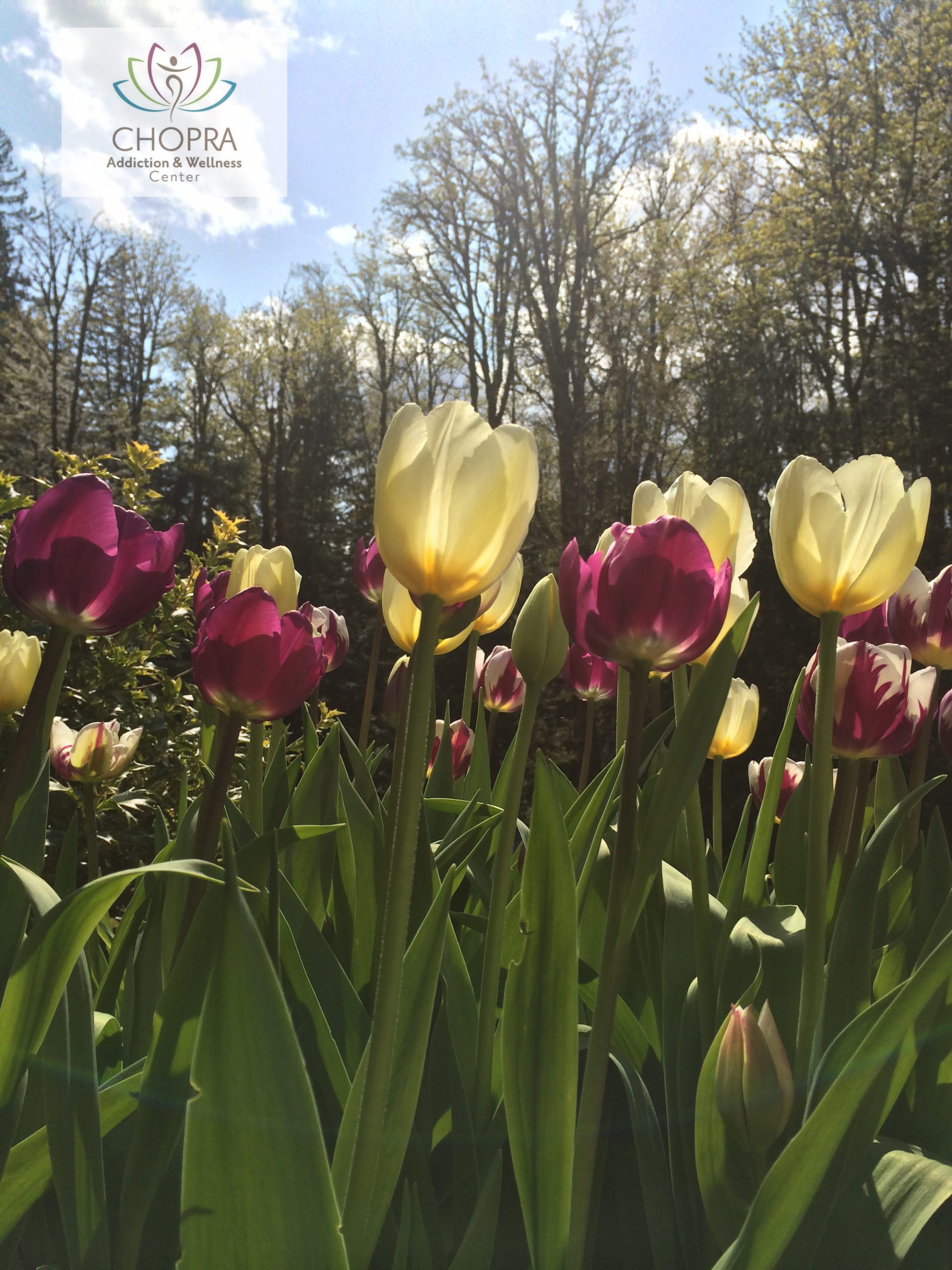Nurturing the Blooms of Spring

by Nirmala Raniga
It can be challenging when we engage in inner work and don’t feel as though we can see the fruits of our labours. Sometimes those we look to for approval have an image of us that is difficult for them to let go of, and consequently they are not able to offer us the validation we crave. When we have feelings like this, we must go deep into ourselves and have faith that the path we’ve chosen will ultimately yield greater health and wellbeing.
Each spring, the world is given an opportunity to renew. Trees blossom, grasses flourish, beautiful birds and wildlife seemingly come alive to enjoy the season. However, all that we are able to witness is the result of hard work that takes place during dormant times – a time when Nature is busy quietly establishing a rich foundation from which those wonders will appear.
For those who struggle with drug or alcohol addiction, there is a period during which they too, must create a foundation for a healthy life. Perhaps the addiction has endured for many years, and a healthy lifestyle is an unfamiliar path. When a person decides to change his or her life and embrace a new way of living, the seeds must first be planted before anything can flourish and bloom. For instance, beneficial activities such as getting proper rest, adopting a daily practice of meditation, or eating nourishing food, may be concepts that are unfamiliar and need to be cultivated.
Similarly to Nature, as we learn and incorporate healthy new skills into our lives, we will experience a dormant period. Particularly during that time, friends and family may not immediately see all the good we are doing for ourselves and others. If someone has been a part of an addicted person’s life for a long time, they may be impatient and want to see results right away. Despite such expectations, we must continue to be gentle, turning any negative self-talk into a monologue of patience and kindness.
People often mistakenly believe that drug and alcohol addiction are simply the result of poor choices. However, human biology plays a crucial role. The human brain releases a neurotransmitter called dopamine in the limbic portion of the brain in response to pleasurable experiences. When an individual uses drugs or alcohol, large amounts of dopamine are released. Elevated levels of dopamine create a connection in the individual’s brain with the drug and the euphoric feeling the dopamine creates. With extended drug or alcohol use, the brain consequently needs larger amounts of the abused substance to experience the dopamine “reward.”
As we embark on a path toward wellbeing, if we have been abusing drugs or alcohol, we are not only working to change ingrained habits, but are re-programming our neurobiology. With that in mind, it is even more important that we be patient with ourselves and encourage others to support us, instead of judging what we have to show for our journey.
In order to stay the course, we must continue taking good and gentle care of ourselves. Staying committed to a regular meditation and yoga practice; being sure to get proper rest; eating well; spending time with those we love; doing things we love to do; and spending time connecting with Nature are all vital to our wellbeing. And much like spring itself, we must always have hope and trust in the process we are embracing, and believe that the foundations we are establishing during this period of inner work are certain to bear rich and bountiful fruit.
